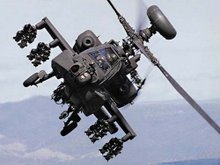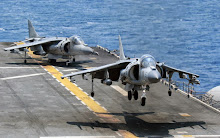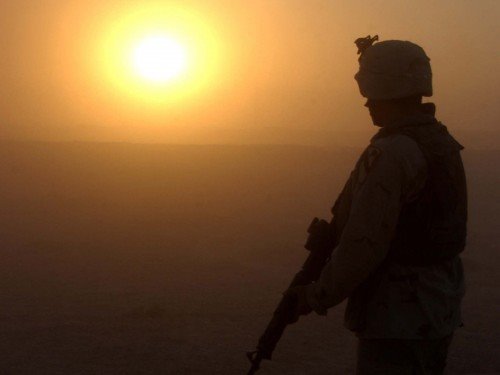The court-martial case against MSgt
Michael Silva has been dismissed by the government. I am grateful and
relieved that Mike and his family can now try to move forward from this
difficult time.
Much has been said publicly about this case; some of it inaccurate, some of it uninformed, some of it clearly biased. I won't address it all, but I do want to address some.
I did not represent Mike in his first trial, but it is important to note that while the conviction in his first trial was overturned by the Air Force Court of Criminal Appeals based on a legal error, that legal error cannot be just considered a "technicality." It was far from that.
In Mike's first trial, the prosecution was permitted to make an improper argument about how the court members (jury) could consider the evidence in the case. So, not only did the prosecutor seize on the opportunity to make that improper argument, the trial judge instructed the members they could consider the evidence the way the prosecutor said they could.
This improper argument was one prosecutors were making at the time of Mike's first trial (and defense counsel were objecting to) because a case addressing the improper argument had not yet been considered on appeal. So, in the absence of case law prohibiting the argument, prosecutors were gambling that such an argument would hold up on appeal - even though defense counsel were arguing against the legality of the argument. The gamble did not pay off for the government/prosecution.
When that prosecution argument was finally considered on appeal by the highest military appellate court - the Court of Appeals for the Armed Forces - in a case called United States v. Hills, the argument was found by the Court to be improper, unconstitutional, and to undermine the presumption of innocence.
The prosecution used that improper argument in Mike's first trial, the court members considered the evidence in a manner undermining his presumption of innocence, and the improperly obtained conviction in Mike's first trial was overturned based on U.S. v. Hills.
It is also important to note, however, that not every case in which the prosecution used that improper argument and obtained a conviction has been overturned on appeal based on U.S. v. Hills. The appellate courts also look at the evidence in the particular case, to determine if a conviction would have been secured despite the improper argument. Specifically, the government must show to the appellate court that there was no reasonable possibility that the erroneous argument contributed to the conviction.
The government was unable to show that the erroneous argument did not contribute to the conviction in Mike's case. The Air Force Appellate Court emphatically disputed the government's claims that they would have obtained a conviction anyway. In fact, with regard to Mike's first trial, the Appellate Court found that the trial prosecutor "hammered" on the improper argument, and the Appellate Court detailed many of the weaknesses in the prosecution's evidence and case that were overcome by the prosecutor using the improper argument. That is why Mike's case was overturned based on U.S. v. Hills, while some other military cases that raised this issue on appeal have not resulted in an overturned conviction.
In addition, because Mike's conviction was overturned based on the U.S. v. Hills issue, the appellate court did not have to address any of the other issues raised on appeal...and there were additional strong issues that were raised on appeal but never addressed, because the case was decided on the U.S. v. Hills issue.
In MSgt Silva's re-trial, in which I represented him, we raised multiple pre-trial motions that were pending, including a motion to dismiss the case. Based on that pending motion to dismiss the case, the Convening Authority dismissed two of the remaining three allegations. That left one allegation for which there were several pending motions, to include the motion to dismiss. Before the motions could be heard, based on inputs received by the Convening Authority, the remaining allegation, and the case, was dismissed.
I would like to sincerely thank all of those who have provided support to Mike and his family during this case. It has been a long and difficult road. I would also like to thank Save Our Heroes, not only for their support, but for their considerable efforts in uncovering even more information for the defense to use in the re-trial, which was cited by some of the motions we filed before the case was dismissed.
It has been my pleasure to represent and defend MSgt Mike Silva. Now that the court-martial case is over, it is my hope that Mike and his family can put this painful chapter of their lives to rest.
LAW OFFICES OF RICHARD V. STEVENS, P.C.
Phone: (888) 399-0693
Web: http://militaryadvocate.com/
Blog: http://militaryadvocate.blogspot.com/
Much has been said publicly about this case; some of it inaccurate, some of it uninformed, some of it clearly biased. I won't address it all, but I do want to address some.
I did not represent Mike in his first trial, but it is important to note that while the conviction in his first trial was overturned by the Air Force Court of Criminal Appeals based on a legal error, that legal error cannot be just considered a "technicality." It was far from that.
In Mike's first trial, the prosecution was permitted to make an improper argument about how the court members (jury) could consider the evidence in the case. So, not only did the prosecutor seize on the opportunity to make that improper argument, the trial judge instructed the members they could consider the evidence the way the prosecutor said they could.
This improper argument was one prosecutors were making at the time of Mike's first trial (and defense counsel were objecting to) because a case addressing the improper argument had not yet been considered on appeal. So, in the absence of case law prohibiting the argument, prosecutors were gambling that such an argument would hold up on appeal - even though defense counsel were arguing against the legality of the argument. The gamble did not pay off for the government/prosecution.
When that prosecution argument was finally considered on appeal by the highest military appellate court - the Court of Appeals for the Armed Forces - in a case called United States v. Hills, the argument was found by the Court to be improper, unconstitutional, and to undermine the presumption of innocence.
The prosecution used that improper argument in Mike's first trial, the court members considered the evidence in a manner undermining his presumption of innocence, and the improperly obtained conviction in Mike's first trial was overturned based on U.S. v. Hills.
It is also important to note, however, that not every case in which the prosecution used that improper argument and obtained a conviction has been overturned on appeal based on U.S. v. Hills. The appellate courts also look at the evidence in the particular case, to determine if a conviction would have been secured despite the improper argument. Specifically, the government must show to the appellate court that there was no reasonable possibility that the erroneous argument contributed to the conviction.
The government was unable to show that the erroneous argument did not contribute to the conviction in Mike's case. The Air Force Appellate Court emphatically disputed the government's claims that they would have obtained a conviction anyway. In fact, with regard to Mike's first trial, the Appellate Court found that the trial prosecutor "hammered" on the improper argument, and the Appellate Court detailed many of the weaknesses in the prosecution's evidence and case that were overcome by the prosecutor using the improper argument. That is why Mike's case was overturned based on U.S. v. Hills, while some other military cases that raised this issue on appeal have not resulted in an overturned conviction.
In addition, because Mike's conviction was overturned based on the U.S. v. Hills issue, the appellate court did not have to address any of the other issues raised on appeal...and there were additional strong issues that were raised on appeal but never addressed, because the case was decided on the U.S. v. Hills issue.
In MSgt Silva's re-trial, in which I represented him, we raised multiple pre-trial motions that were pending, including a motion to dismiss the case. Based on that pending motion to dismiss the case, the Convening Authority dismissed two of the remaining three allegations. That left one allegation for which there were several pending motions, to include the motion to dismiss. Before the motions could be heard, based on inputs received by the Convening Authority, the remaining allegation, and the case, was dismissed.
I would like to sincerely thank all of those who have provided support to Mike and his family during this case. It has been a long and difficult road. I would also like to thank Save Our Heroes, not only for their support, but for their considerable efforts in uncovering even more information for the defense to use in the re-trial, which was cited by some of the motions we filed before the case was dismissed.
It has been my pleasure to represent and defend MSgt Mike Silva. Now that the court-martial case is over, it is my hope that Mike and his family can put this painful chapter of their lives to rest.
LAW OFFICES OF RICHARD V. STEVENS, P.C.
Phone: (888) 399-0693
Web: http://militaryadvocate.com/
Blog: http://militaryadvocate.blogspot.com/
























